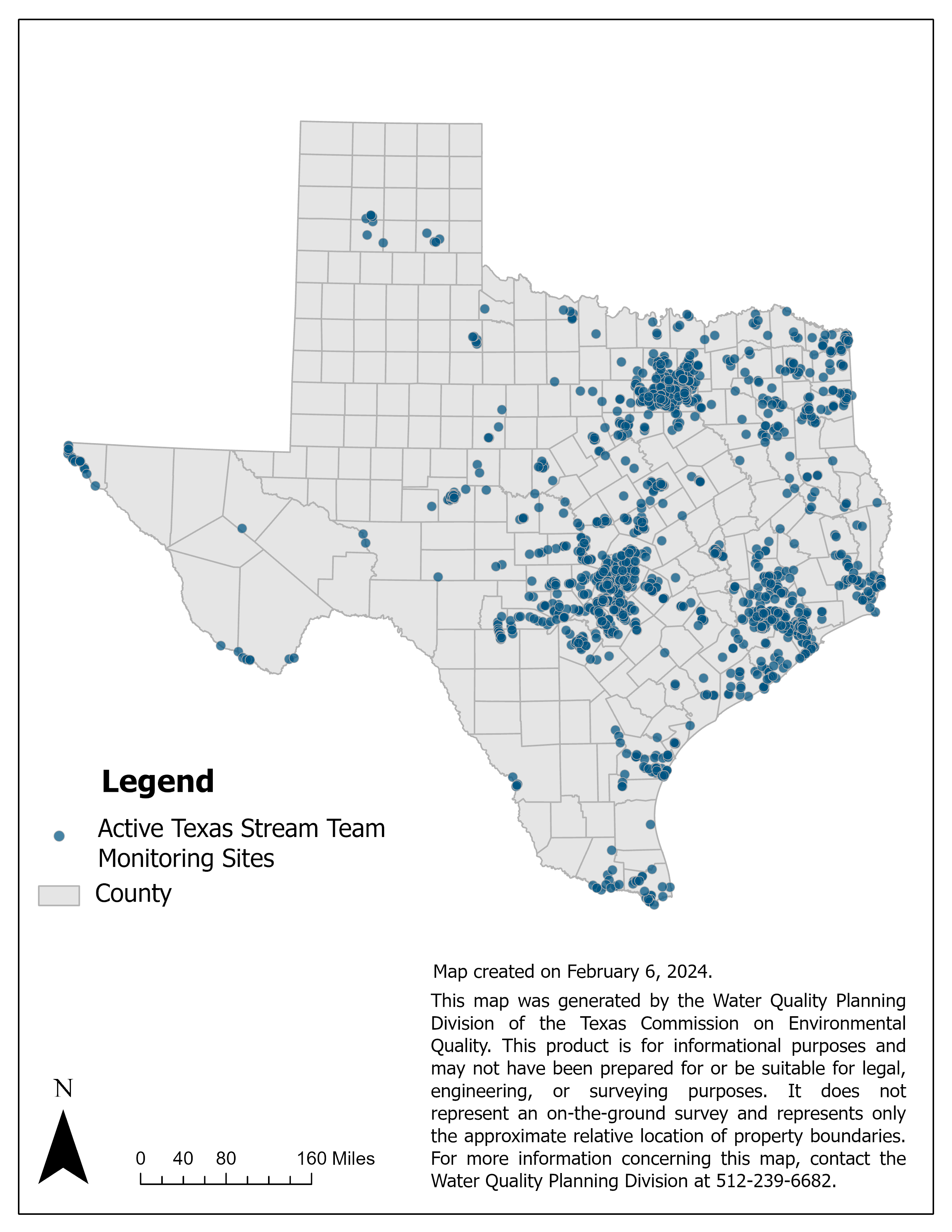Texas Stream Team Program: Statewide Volunteer Monitoring
Texas Stream Team coordinates a network of partner organizations and community scientists to increase the public's knowledge of water quality and nonpoint source pollution across the state.

On this page:
Project Area
Location: Statewide
Background
Texas Stream Team (TST), directed by Texas State University’s Meadow Center for Water and the Environment (Meadows Center), is an on-going state program. TST coordinates a network of partner organizations and volunteer community scientists who seek to increase the public’s knowledge of water quality and nonpoint source pollution across the state through water quality monitoring, data collection and analysis, and related educational programs. The TST program is currently being implemented via three concurrent contracts with the Texas Commission on Environmental Quality.
Project Description
TST engages a statewide network of volunteer community scientists who are trained to monitor the water quality of their local lakes, rivers, streams, and estuaries at assigned sites. Each year these volunteers monitor hundreds of water quality sites, and the information they collect is submitted to a database containing over 23 years of data, maintained by the Meadows Center.
These data can be used to identify areas with water quality concerns that can be communicated to water resource managers who implement best management practices (BMPs) for improving water quality. Long-term monitoring can be used to assess the effectiveness of such BMPs.
TST supports a variety of watershed services in communities that have completed or are currently developing watershed protection plans and/or total maximum daily loads. Services include assisting water quality data collection and analysis and providing TST programming and information regarding matching/in-kind funds.
TST also provides watershed education on topics including nonpoint source pollution and water conservation and management.
TST will continue managing, expanding, and strengthening their statewide community science network by working with partners and established groups, creating new partner networks and community scientist groups, expanding the role of community scientists in Texas, and educating the public, students, volunteers, and resource managers about watersheds, water quality, and nonpoint source pollution.
For More Information
To find out more about the NPS Program, call 512-239-6682 or e-mail us at nps@tceq.texas.gov.

 Back to top
Back to top